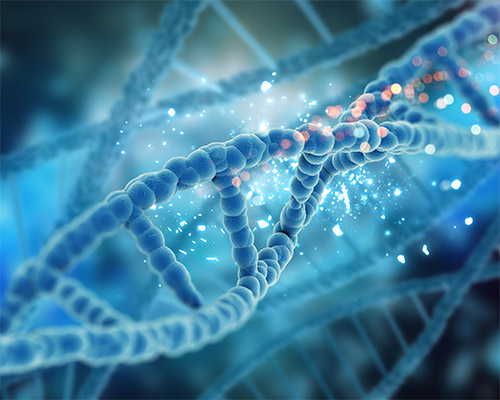Finding a novel cause of primary immunodeficiency
Clinical immunologists specialise in diagnosing and treating patients with inherited or acquired failures of the immune systems that lead to infections and autoimmune complications. When the cause of an immune system disorder is unknown, clinical trials and research can be vital in providing answers. Here, Dr Sinisa Savic describes how a novel cause of primary immunodeficiency was discovered.
Maurice was well as a child but began suffering with frequent chest infections from his mid-teens. At 15 years old, he recalled being treated for pneumonia. It was not until he was 19 years old that he came to the attention of the clinical immunology department at St James’s University Hospital in Leeds. His referral was triggered by a finding of very low levels of immunoglobulins (antibodies) in his blood, following routine investigations for chronic diarrhoea.
As medical science continues to advance, the technology for correcting genetic conditions will become more readily available.
Once he was under the care of the clinical immunology team, detailed investigations of his immune system were arranged. This included studying particular types of white blood cells, mainly lymphocytes, to determine more precisely the type of immunodeficiency Maurice was suffering from. These tests showed that his immune system was not producing enough immunoglobulin or a specific type of lymphocyte called a CD4 T cell. In addition, when his lymphocytes were activated by signals mimicking natural infection, they did not respond properly.
Maurice had no family history of immunodeficiency to suggest a genetic cause for his condition, but neither did his condition fit with one of the genetic types of primary immunodeficiency known about at time, since his disease onset was so late. Therefore, he was given a diagnosis of common variable immunodeficiency – a diagnostic label used for some primary immunodeficiencies of unknown cause. He was started on immunoglobulin replacement therapy and has remained on this treatment ever since.
In 2014, Maurice was invited to take part in a local study that aimed to improve the diagnosis of primary immunodeficiencies through the use of advanced genetic testing. Maurice was found to have unique changes within his genetic code, in a gene called CRACR2A. Changes in this gene had not previously been linked to any specific health conditions, but studies in mice had shown that when this gene was deleted, it resulted in abnormal function of the immune system. In particular, it led to the reduced capacity of CD4 T cells to respond to infection, similar to what was seen when testing Maurice’s lymphocytes.

Following this initial genetic discovery, it took several years to complete the testing required to provide definitive proof that the changes in Maurice’s genetic code were the cause of his immunodeficiency. In part, this is because Maurice is the only person in the world where these specific genetic changes have been associated with immunodeficiency. It has been almost 20 years from the onset of symptoms to the point where we were able to establish a precise diagnosis for Maurice’s condition. Over this period of time, many new immunodeficiency conditions have been identified and genetic testing is now part of the routine diagnostic work-up for patients presenting with suspected immunodeficiency. We have more sophisticated ways in which to study the immune system and the length of time from becoming ill to getting a precise diagnosis is ever shorter for our patients.
None of this research would be possible without Maurice and others like him volunteering to take part in studies and help advance medical science.
The discovery of a genetic cause for Maurice’s immunodeficiency did not result in any immediate change to his treatment. However, simply having an explanation helps him to cope with this long-term condition and he is now better able to make informed decisions about his career and family plans. As medical science continues to advance, the technology for correcting genetic conditions will become more readily available. Since this will only be relevant in patients with a precise genetic diagnosis, the importance of such diagnoses cannot be overemphasised.
None of this research would be possible without Maurice and others like him volunteering to take part in studies and help advance medical science. The practice of clinical immunology has always been closely linked to basic translational research. This is probably why the recent update (2022) from the International Union of Immunological Societies can list 485 separate human inborn errors of immunity, with 50 of these identified in the last two years.
